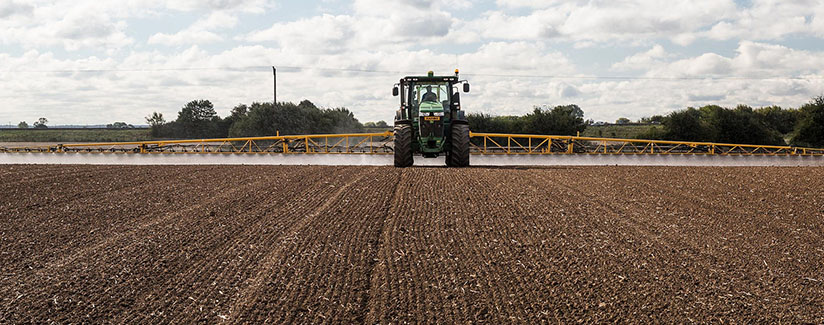
What’s All the Buzz about Glyphosate?
08/19/2016
Originally posted on October 28, 2014.
We have seen lots of consumer questions about glyphosate. Glyphosate, also referred to as “Roundup,” is an herbicide used in agriculture to kill weeds. So what’s all the buzz about glyphosate? Some resources link this herbicide to making crops more susceptible to disease, killing beneficial microorganisms, robbing plants of nutrients and more. We decided to reach out to Wayne Parrott, PhD, Professor in the Department of Crop and Soil Sciences College of Agricultural & Environmental Sciences at the University of Georgia, and Tony Shelton, PhD, Professor of Entomology at Cornell University, to cut through conflicting information.
The Takeaway: Like other herbicides used in the United States in both organic and conventional agriculture, glyphosate is regulated and poses no concern with regard to human health. Herbicides help increase yields, which help to feed a growing population.
Is it true that glyphosate ends up in your body after eating crops treated with it?
Dr. Parrott: “A little bit of many different chemicals all end up in the body. There is nothing different or unusual about glyphosate in that regard. The important thing is that when it is found in the body, it is in levels many times lower than what EPA considers safe. In other words, there is no cause for concern.”
When eating plants treated with this herbicide, will the residue kill beneficial microorganisms, messing up the ratio between good and bad bacteria in your gut?
Dr. Parrott: “No. No one has ever shown data that this happens. It remains firmly in the realm of speculation.”
Does glyphosate poison the soil for all plants?
Dr. Parrott: “Glyphosate has been in use for some 30 years, during which yields have increased about 1 percent per year. Such sustained yield increases would not be possible if glyphosate was poisoning the soil. If the charge was true, one would see a barren wasteland when driving through the Midwest, rather than the fertile fields of corn and soybean that grow there today.”
Is glyphosate used on non-GMO crops, too?
Dr. Shelton: “This question isn’t as simple as yes or no. Roundup (glyphosate) is used when a Roundup Ready crop emerges along with surrounding weeds. The weeds are killed by glyphosate, but not the crop. Growers would only spray a Roundup Ready crop with glyphosate. However, non-GM growers also use glyphosate to kills weeds prior to plowing and getting a field ready to plant a crop.”
Are micronutrients in treated plants reduced?
Dr. Parrott: “No. Again, speculation. Nutrient levels do vary in plants, but that depends on the variety and location grown.”
Does glyphosate reduce nitrogen fixation – a process where nitrogen in the atmosphere is converted into ammonium?
Dr. Parrott: “There is a kernel of truth in the claim that glyphosate decreases nitrogen fixation – it does for about 2-3 days after application, and some plants even get a ‘yellow flash’ during that period. But then, everything returns to normal, and yield is not affected.”
“Chafer Sentry” by Chafer Machinery is licensed under CC BY.

























